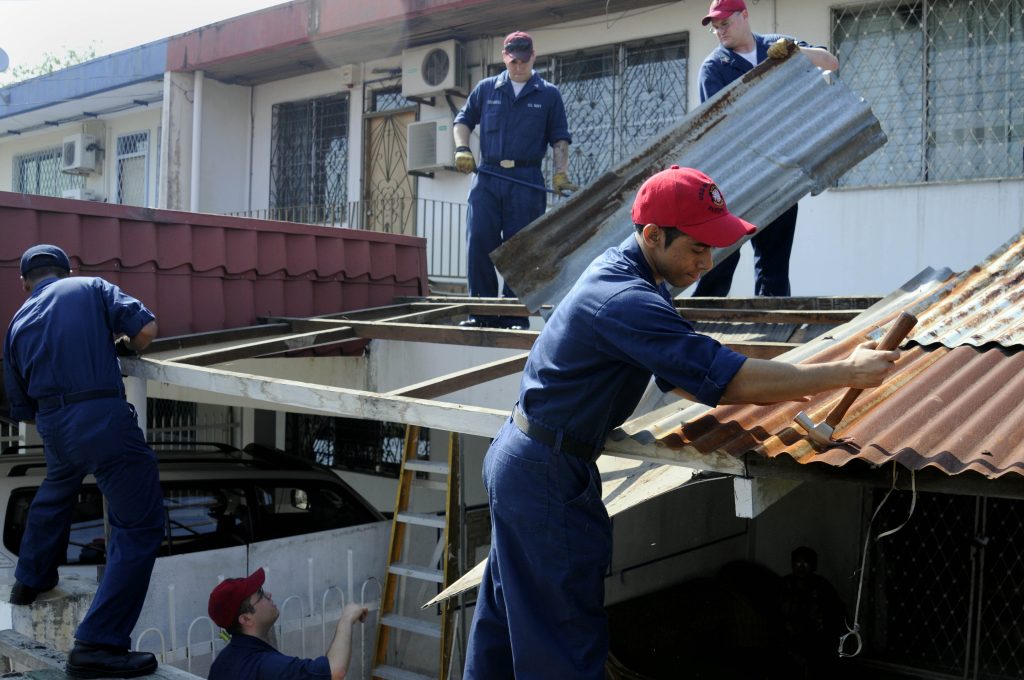 When renting an apartment, tenants expect a safe and secure living environment. However, what happens when an accident occurs due to negligence by the apartment owner and management company? If a leaky roof in your apartment injures you, can you make a claim for your injuries? The following lawsuit answers that question.
When renting an apartment, tenants expect a safe and secure living environment. However, what happens when an accident occurs due to negligence by the apartment owner and management company? If a leaky roof in your apartment injures you, can you make a claim for your injuries? The following lawsuit answers that question.
Kim Faciane lived in the Golden Key Apartments. After moving out, she filed a lawsuit against Golden Key, who owned the apartment complex, and Ohio Management, who managed the complex, and its insurer (collectively, the defendants). She claimed one night, while asleep in her apartment, sheetrock fell from the ceiling because of the leak. She claimed it hit her leg and caused her to slip and injure her back and neck. She claimed the defendants were liable because they kept the apartment in disrepair, did not repair the ceiling after being informed it leaked, and otherwise not properly maintaining or inspecting the apartments.
The defendants filed a summary judgment motion, arguing that the lease had a provision that required Faciane to hold them harmless for any property or personal injury claims. They argued under La. R.S. 9:3221, Faciane was responsible for the premises’ conditions unless they were neglectful or failed to take action after she notified them in writing of a defect. They argued they did not know of any issues with the roof until after the accident occurred. Faciane countered the defendants had been notified about issues with the apartment’s ceiling at least two times before. The trial court granted the defendants’ summary judgment motion and dismissed Faciane’s lawsuit, who appealed.
Under Louisiana law, usually, the owner of a building is liable for the conditions of the premises. See La. C.C. art. 2322. Under La. C.C. art. 2699, the warranties the lessor owns a lessee can only be waived through clear and unambiguous language. However, such a waiver is ineffective with respect to defects the lessee (here, Faciane) did not know about but the lesser knew or should have known about or if the defect seriously affects safety or health. Under La. R.S. 9:3221, a lease contract may require a lessee to be responsible for the premise’s condition. However, this cannot apply to common areas, such as stairways.
On appeal, Faciane argued the trial court erred in granting the defendants’ summary judgment motion because the defendants were aware of the defect and should be liable. Faciane was allegedly injured from a leak in her apartment ceiling. A tenant like Faciane is not expected to inspect the ceiling or otherwise have knowledge of a leak on the apartment’s exterior roof. The appellate court found the ceiling was part of the apartment’s shared roof, so under La. R.S. 9:3221, the lease could not require Faciane to be responsible for it. Further, the defect at issue would affect health and safety, so the warranties could not apply under La. C.C. art. 2699. Therefore, the appellate court held summary judgment was inappropriate and reversed the trial court’s dismissal of Faciae’s lawsuit.
Lease agreements are legally binding documents with significant implications for landlords and tenants. Understanding a lease’s provisions, rights, and responsibilities is crucial for ensuring a safe and fair living environment. If you are facing an issue with your lease agreement or believe your landlord is unfairly holding you liable for your injuries, seeking legal counsel can clarify Louisiana law and help protect your rights as a tenant.
Additional Sources: Kim Faciane v. Golden Key Division Limited Partnership
Article Written By Berniard Law Firm
Additional Berniard Law Firm Article on Lease Agreements: Tenants Failure to Abide by Lease Agreement Results in Lost Ability to Sue Landlord
 Louisiana Personal Injury Lawyer Blog
Louisiana Personal Injury Lawyer Blog

